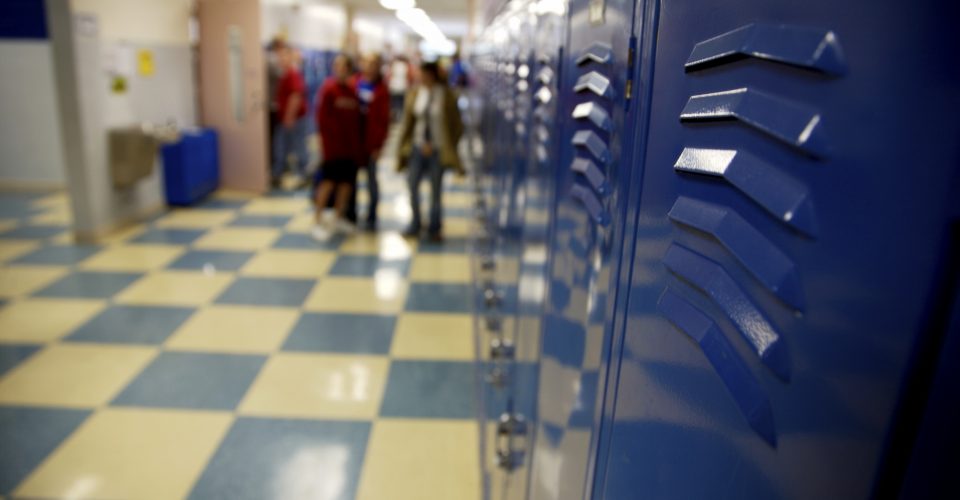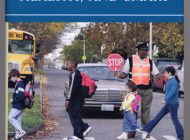Grant-funded Program Prepares Special Education Teachers
Looking over a classroom of a dozen junior high school students at Plymouth Elementary School, special education intern Jennifer Kay ’99 worries what the future holds for the class of kids with mental and physical challenges.
“I have doubts about where some of my students will be in five years. I worry about their future,” admits Kay, who is completing a master’s degree in special education at PSU.

Jennifer Kay ’99 is completing her master’s in special education at PSU. Photo courtesy of Jennifer Kay.
She is not alone. There are nearly 2,000 students with disabilities in New Hampshire public school classrooms this year, and many of these students are performing well below normal academic standards. The concern among educators is how well these students will integrate into society after high school—will they be responsible and productive or find themselves in the care of social service agencies?
“Currently, young people with disabilities have horrible post-secondary outcomes,” says Plymouth State University Professor of Special Education Ann Berry. “There is a low rate of attending college and getting full-time employment. The statistics have been terrible for a long time.”
Berry believes this transition from school to the workforce needs more emphasis in K-12 classrooms. To achieve this, PSU and Keene State College are partnering on a two-year, $52,000 New Hampshire Department of Education grant called Next Steps. The goal of the project is to improve training for K-12 teachers and emphasize transition skill building for students with mental, emotional, and physical challenges.
“Step one is identifying a student’s abilities, interests and how they relate to the world of work,” Berry notes. “Then we look at what we can do in middle school and high school to help build the skills students need.”
PSU Education Professor Marcel Lebrun believes the Next Steps project is a step forward with expectations for people with disabilities.
“We want them to become valuable, contributing members of our society, as opposed to, ‘we’re going to house you because you’re not fully functional and separate you from our community,’” asserts Lebrun.

Professors Marcel Lebrun (left) and Ann Berry are training teachers to better prepare students with mental, emotional, and physical challenges for life after high school. Bruce Lyndes photo.
Other educators think school systems place too much emphasis on test scores and not enough on transitions skills.
“I wonder if we’ve become too hyper-focused on tests rather than on skills–what purpose do the tests serve? I know the kids struggle with it, too. Much of it isn’t relevant to their futures,” says PSU graduate student Nicole Ainsworth-Brown, who teaches special needs students in Goffstown.
“My students don’t test well,” adds Kay. “They need more adaptive skills and core knowledge that they can utilize outside of the learning environment. For instance, learning life skills like doing the laundry, those kinds of basic things. I have eighth graders who can’t tell time. I feel like we’re passing these kids through and they’re missing the basics … and then what?”
Berry believes the Next Steps grant can shift educators’ focus to getting special needs students out into the community before they leave school, thereby elevating their chances for success. Lebrun agrees, asserting transitions skills training may not fit the standard definition of a classroom education, but ultimately, it can be more valuable.
“As educators we help students gain skills, so they’re able to contribute to society,” Lebrun says. “As long as people have that sense of self and they’re contributing, they have higher productivity, higher commitment, and a better quality of life. It allows people to have a sense of connection and belonging. Isn’t that what we’re supposed to be about?” –Photos and story by Bruce Lyndes
Tags: Ann Berry grant Marcel Lebrun Next Steps NH Department of Education special education











